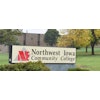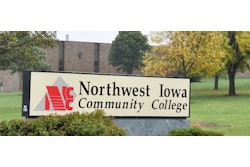Last February, associate editor Toni Coleman looked into whether DNA tracing was an expensive waste of time, given the increasing popularity of African-Americans setting out to learn their African lineage.
In Toni’s “Regaining a Lost Heritage,” conflicting arguments ensued on the part of scholars. Dr. Rick Kittles of the University of Chicago and co-founder of African Ancestry Inc. said he had the largest and most comprehensive database of African DNA samples. However, Dr. Bruce A. Jackson, co-director of the African-American DNA Roots Project at the University of Massachusetts Lowell, said it was not possible to match African-Americans to specific regions and tribes in Africa because of Africans’ genetic diversity and migrationpatterns.
Fast forward one year later and it’s doubtful that these two scholars are any closer to coming to any type of agreement, but one thing is for certain, DNA tracing is still as popular as ever, as is tracing one’s genealogy through historical records, which are much more accessible now because of the Internet.
In “The New Genealogy,” senior writer Ronald Roach reports on what could be considered an update or part two to Toni’s 2007 piece. Ron points to the revelation of slavery ties between the family of the Rev. Al Sharpton and the late U.S. Sen. Strom Thurmond as just one example of genealogy getting media attention. Just last fall, Lynne Cheney, wife of the vice president, said that while tracing her husband’s genealogy, she found that Dick Cheney and U.S. Sen. Barack Obama may share a common ancestor eight generations ago.
But these examples also shine a spotlight on something that people always knew, but perhaps didn’t have the DNA proof or historical documentation to prove, and that is evidence of mixed heritage. Historically, because of the “one drop rule,” Black ancestry was seen as a great disadvantage for Whites. But as time goes on, more people are embracing their diverse lineage. Probably the most high-profile and ongoing example of this is the controversy surrounding whether President Thomas Jefferson fathered a child(ren) with his slave Sally Hemings. There are still Jefferson descendants who do not recognize Hemings’ descendants as “family,” even though a group of descendants from both sides began holding joint family reunions almost 10 years ago.
Writes Ron: “While there’s some controversy about the claims of DNA testing firms as to how accurately they can match individuals to ancestors from specific communities … there’s consensus that proper testing can roughly specify a person’s relative mix of his or her ancestors’ geographic origins.”
In this edition, we also highlight the growing and evolving role of community colleges. Senior writer David Pluviose reports on how more and more high-achieving students are opting for community colleges for a variety of reasons, lower cost not an insignificant factor. These two-year institutions are accommodating these students with honor societies and honors programs and articulation agreements with four-year institutions. Community college officials are well aware of the perception of mission creep and are working hard to stay true to their mission of access and of serving students who are in various stages of their educational and professional lives. Read more in “Community College By Choice.”
Click here to post and read comments
© Copyright 2005 by DiverseEducation.com















